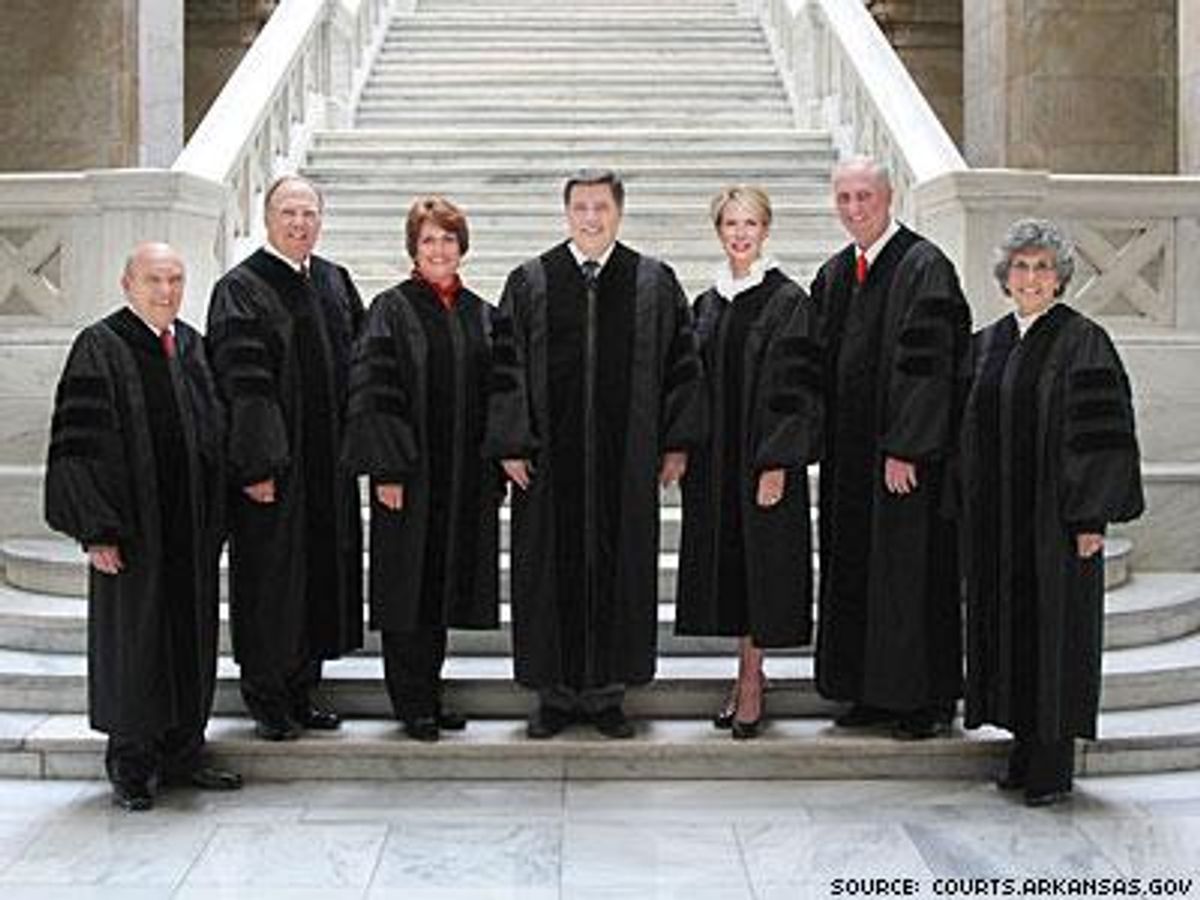Marriage Equality
BREAKING: Ark. Supreme Court Denies Stay, But Halts Marriage Equality
BREAKING: Ark. Supreme Court Denies Stay, But Halts Marriage Equality

The state's highest court rejected the attorney general's request to stay a ruling that established marriage equality, but said another statute is still in place forbidding the issuance of marriage licenses to same-sex couples.

Sunnivie Brydum
Sunnivie is the managing editor of The Advocate, and an award-winning journalist whose passion is covering the politics of equality and elevating the unheard stories of our community. Originally from Colorado, she and her spouse now live in Los Angeles, along with their three fur-children: dogs Luna and Cassie Doodle, and "Meow Button" Tilly.
Sunnivie is the managing editor of The Advocate, and an award-winning journalist whose passion is covering the politics of equality and elevating the unheard stories of our community. Originally from Colorado, she and her spouse now live in Los Angeles, along with their three fur-children: dogs Luna and Cassie Doodle, and "Meow Button" Tilly.
May 14 2014 7:13 PM EST
November 17 2015 5:28 AM EST
sunnivie

















































































